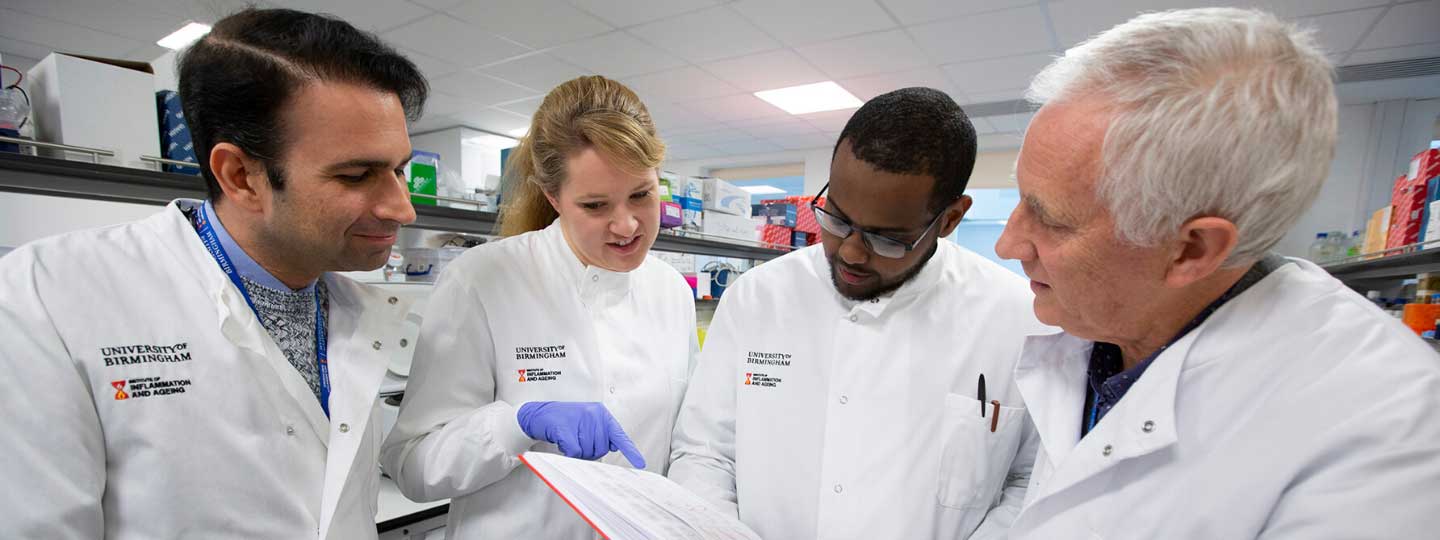What is epidemiology and why is it important?
26 May 2020
Epidemiology is the study of diseases in populations, investigating how, when and why they occur. The diseases studied are wide-ranging, including infectious diseases like coronavirus and non-infectious diseases like arthritis.
People who work in this field are referred to as epidemiologists. When a disease occurs in a population, epidemiologists help us to understand where the disease is coming from, and who it is most likely to impact. The information gathered can then be used to control the spread of the disease and prevent future outbreaks.
Professor Will Dixon, Director of the Centre for Epidemiology Versus Arthritis:
“As a rheumatologist, some of the commonest questions my patients ask in clinic are ‘Why did I get this?’ ‘Now that I have it, what does the future hold for me?’ and ‘What can I do to control the disease?’.
The discipline of epidemiology allows us to answer all these questions. It’s interesting detective work, requiring us to gather all of the relevant information, to piece it together, and to analyse it thoughtfully in order to come to the right conclusions. And it’s rewarding, given that it can answer questions of real importance for people living with arthritis and other diseases.”
What can epidemiology tell us about arthritis?
Epidemiology can help to explain the possible causes and, progression of musculoskeletal conditions and help to direct treatment.
Our Centre for Epidemiology Versus Arthritis is based at the University of Manchester and has a particular focus on inflammatory arthritis (such as rheumatoid arthritis and psoriatic arthritis) and osteoarthritis.
The work they do includes:
- Understanding how common musculoskeletal conditions are, what influences their occurrence, how they progress in the short and long-term, and what is the impact of them on people’s lives.
- Evaluating the effectiveness and safety of treatments for musculoskeletal conditions, including biologic drugs such as anti-TNF, pain relieving drugs and non-pharmacological treatments.
- Bringing together large, digital data sets to study arthritis in the population.
- Developing new methods and using existing methods to make sense of epidemiology data.
- Ensuring research influences policy and practice by partnering with others.
Examples of our epidemiological funded research and what we’ve learnt about arthritis
Norfolk Arthritis Register (NOAR)
NOAR is the largest community-based study in the world to look at the onset, development and long-term impact of inflammatory arthritis, with over 4,000 participants.
Over the last 30 years, NOAR has helped to rewrite textbooks and inform healthcare professionals on the management and treatment of rheumatoid arthritis.
The study has helped us to understand how widespread inflammatory arthritis is, factors that might be related to the onset of arthritis (e.g. smoking), people’s responses to treatment, and the long-term impact of the condition.
Going forward, NOAR aims to explore the genetic basis of inflammatory arthritis, the risk of cardiovascular disease, and investigating the link between cognition (how our mind processes information, for example, thinking, problem-solving and planning) and rheumatoid arthritis.
Cloudy with a Chance of Pain
This study used a smartphone app to examine the relationship between local weather and daily pain in people living with long-term pain conditions like arthritis.
Around three-quarters of people living with arthritis believe their pain is affected by the weather, but no study had been able to prove the link before this.
Over a 15-month period, 2658 people recorded their daily pain in the app, which was combined with local weather data. Researchers found that days with higher humidity, lower pressure, and stronger winds are more likely associated with high pain days.
Temperature and rain, however, were not associated with pain. These results could allow scientists to better understand pain mechanisms and support better pain treatments and management in the future.
BRAGGSS (Biologics in Rheumatoid Arthritis Genetics and Genomics Study Syndicate)
Based at our Centre for Genetics and Genomics, BRAGGSS is the largest worldwide study of rheumatoid arthritis patients undergoing treatment with biological therapies for the first time.
Using blood samples and questionnaires, the study aims to evaluate the role of multiple factors in a patient’s response to treatment, including genetic variation, psychological status and environmental factors.
A recent publication from the BRAGGSS study found rheumatoid arthritis patients taking biologics for the first time still face significant limitations regarding their ability to work.
Over the 12-month study, approximately 11% of patients left work, 16% reported sick-leave, and those with higher rates of disability predicted poorer work outcomes.
Fatigue, psychological distress and job type were also connected to different work outcomes.
Furthermore, good treatment response was associated with people being absent from work or not.
Musculoskeletal Health and Work in the General Population
Our Centre for Musculoskeletal Health and Work has a dedicated theme of research which seeks to understand the prevalence and impact of musculoskeletal disorders (MSDs) on work and populations.
These studies include The Health and Employment After Fifty (HEAF) Study, which assesses the impact of musculoskeletal diseases on ability to work, employment status and job retention in older ages, exploring the factors, risks, and impacts of this relationship.
COVID-19 and rheumatic diseases
At the moment, little is known about how patients with rheumatic diseases or autoimmune conditions are affected by COVID-19.
To address this and inform care we are supporting two global COVID-19 initiatives, organised by the COVID-19 Global Rheumatology Alliance which was formed in response to the coronavirus pandemic.
Natalie Carter, Head of Research Engagement "These initiatives will help clinicians to collect and share information about how COVID-19 is affecting people with inflammatory arthritis and other rheumatological conditions.
We hope the information gathered will help to inform the way doctors to advise and care for their patients and evaluate the risk of COVID-19 infection on patients who may be on immunosuppressant treatment."
Read more about our research
We’ll keep you posted on progress and updates, find out more about our research.